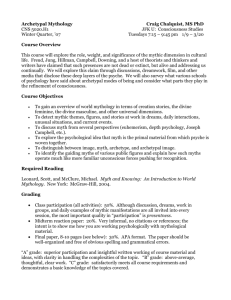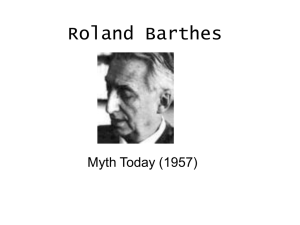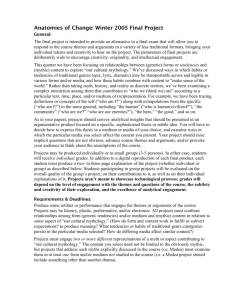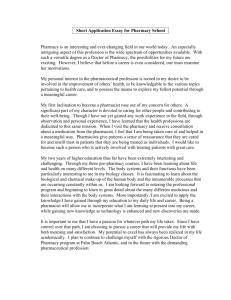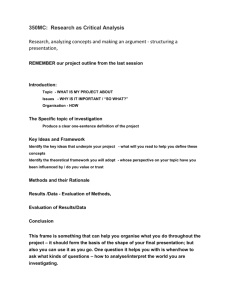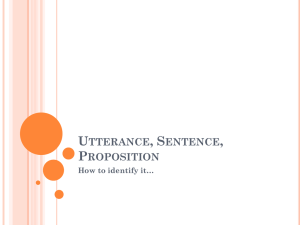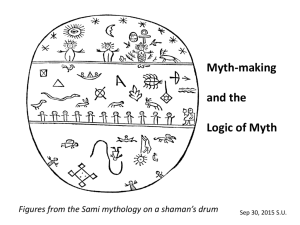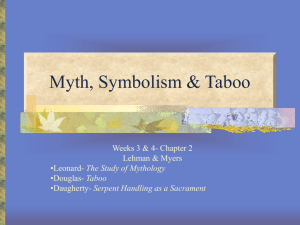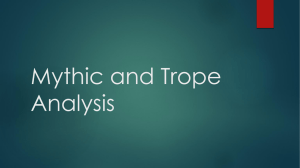Barthes
advertisement
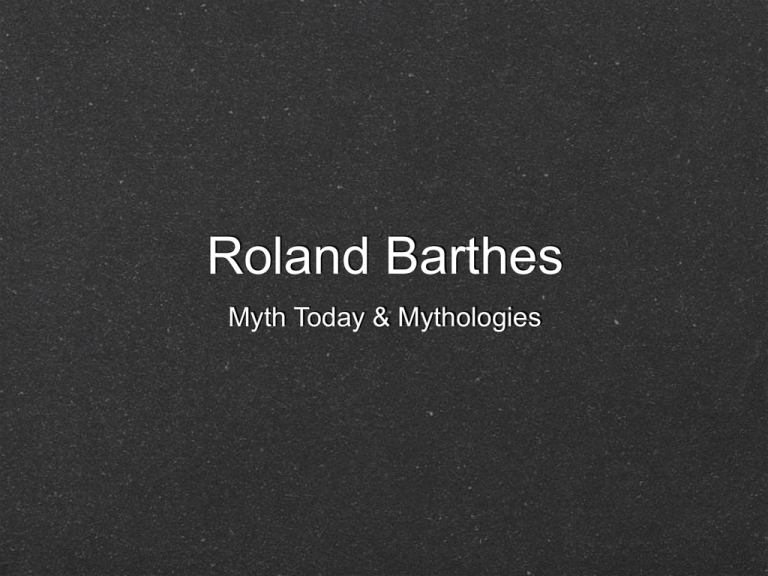
Roland Barthes Myth Today & Mythologies Roland Barthes 1915-1918 Writing Degree Zero 1953 Mythologies 1957 Camera Lucida 1980 The production of myth signifier signified sign signified signifier sign salute patriotism denotative sign mythic form mythic concept connotative sign - myth of French empire blackness crime “denotation” mythic concept mythic form ture. pressor are needed to see this pic Q uickTim e™ and a C in epak decom myth: liberals are soft on crime mythic form mythic concept “denotation” blackness crime Mythical rhetoric Barthes understands bourgeois myths to conform generally to seven key figures These figures can be used as heuristics to interrogate cultural artifacts Myth on the “right”: rhetorical figures typical of bourgeois ideology Neither/Norism: “Liberals or Conservatives: what’s the difference?”; the lose-lose proposition--leads to political cynicism The quantification of quality: the market determines all value The statement of fact: common sense; truisms; things are no more complex than they seem “Caesar fringe” on Marlon Brando “...it is both reprehensible and deceitful to confuse the sign with what is signified.” see “The Romans in Film” “The accidental failure of language is magically identified with what one decides is a natural resistance of the object” (166). Tautology: “because I said so”; “boys will be boys”; “I know it when I see it”; “just do it” Identification: otherness must be reduced to sameness The Family of Man Exhibit Museum of Modern Art 1955 There is only one man in the world and his name is All Men. There is only one woman in the world and her name is All Women. There is only one child in the world and the child's name is All Children. --Carl Sandburg at the entryway to the exhibit “...admitting the accidental evil of a class-bound institution the better to conceal its principle evil” (164) The inoculation: “True freedom includes the freedom to fail.” The privation of history: we know of no time when things were not as they are now “All one has to do is possess these beautiful new objects from which all soiling trace of origin or choice has been removed” (165). Markers, Metasigns, and Styles Markedness is opposed to unmarkedness. It means that a given form is distinguishable from another on the basis of a special semiotic feature. A marked form, in other words, is simply one that stands out from the rest. Unmarked forms tend to be transparent--that is, you don’t notice them; they seem natural. Unmarked forms are the “default” position. Broad sets of markers that identify the same social group are called “metasigns.” They are frequently empty of referential content; they are used to create solidarity among those so marked and distance from those who aren’t. (“Style,” “accent,” and “grammar” all refer to the same phenomenon.)
